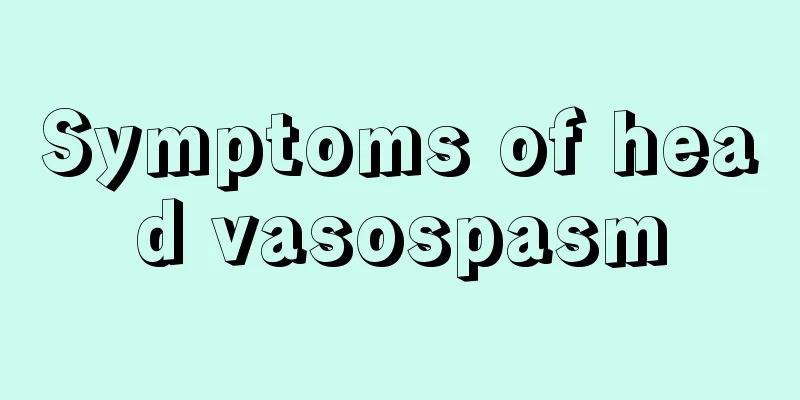How to regulate diet after radiotherapy for nasopharyngeal carcinoma What should patients pay attention to?

|
The main method for treating nasopharyngeal carcinoma is radiotherapy, but many patients suffer a lot from the side effects of radiotherapy. How to adjust diet after radiotherapy for nasopharyngeal carcinoma? What should patients pay attention to? How to adjust diet after radiotherapy for nasopharyngeal carcinoma? It usually occurs 1-2 weeks after radiotherapy, often accompanied by mild taste changes, dry mouth, saliva becomes sticky, and further accompanied by pain, limited eating, the staple food should be semi-liquid or soft food, and the side dishes should eat more fresh vegetables and fruits, especially carrots, water chestnuts, white radish, tomatoes, lotus roots, white pears, oranges, lemons, hawthorns and other fruits. The taste of food should be light and sweet, and it is not advisable to drink too much raw and cold food to avoid cold stomach. Plums, monk fruit, olives, green fruits, etc. in the mouth can stimulate saliva secretion and relieve dryness symptoms. Keep the oral cavity clean, drink plenty of water, more than 2500ml per day, eat small and frequent meals, eat lukewarm food, actively relieve pain, avoid smoking and drinking, and provide nutritional support for those with insufficient energy to ensure that the patient successfully completes the treatment plan. When symptoms of liver fire such as dizziness, deafness, bitter mouth, irritability, etc. occur, it is advisable to choose products that clear the liver and relieve heat, nourish yin and suppress yang to alleviate the symptoms, such as chrysanthemum tea, stir-fried cassia seed coffee, edible bitter melon, day lily, bitter gourd, wolfberry seedlings, plums, abalone, mustard, etc. What do patients usually pay attention to? 1. For most NPC patients, it is recommended to have a follow-up examination 2-3 months after radiotherapy. 2. A small number of nasopharyngeal carcinoma patients with more serious or complicated conditions may undergo a follow-up examination one month after radiotherapy depending on the situation. 3. Nasopharyngeal carcinoma patients with relatively good general conditions can undergo a follow-up examination 3-6 months after radiotherapy. 4. Nasopharyngeal carcinoma patients whose conditions are relatively stable after the first follow-up examination can have another follow-up examination every six months or one year. If you want to recover as soon as possible, I hope everyone can pay attention to the dietary precautions mentioned above and the issues that need to be paid attention to in daily life. After all, you have cancer and failure to actively cooperate will threaten your life. |
<<: How long can you live with breast cancer metastasis
>>: Can nasopharyngeal carcinoma be treated surgically? What other methods can be used?
Recommend
Can anal fistula be treated minimally invasively?
Anal fistula is a disease that occurs after the a...
What is femoral head effusion?
Femoral head effusion generally refers to fluid a...
Is duodenal cancer hereditary?
Is duodenal cancer hereditary? Duodenal cancer is...
Most people with bladder cancer have hematuria
Most people with bladder cancer have hematuria. S...
How to care for liver cancer pain at home? Family members should know these points about liver cancer care
Many diseases, due to the disease itself, will ca...
Will eating too many plums cause constipation?
Many people like to eat plums, but we also need t...
What is skin cancer and what are its symptoms
Skin cancer is a malignant tumor caused by abnorm...
How should the treatment of lung cancer be carried out? Two tasks in the treatment of lung cancer should be done well
Many people think that lung cancer only affects t...
Wearing headphones for a long time will damage your hearing. 3 tips for using headphones
Putting on headphones and listening to music is a...
5 habits to keep brain cancer away
To stay away from brain cancer in daily life, you...
What are the early symptoms of lung cancer? Five early symptoms of lung cancer that you must know
Lung cancer is a common disease in life. It shoul...
Why does my butt hurt? What are the causes of waist and buttock pain?
In our daily life, we should often experience pai...
Pain care methods for patients with brain cancer
If brain cancer patients do not receive timely tr...
How long can you live with stage 1 uterine cancer
How long can you live with stage 1 uterine cancer...
What to eat when you are exposed to secondhand smoke? Diet for people who breathe secondhand smoke
Compared with first-hand smoke, people who freque...









